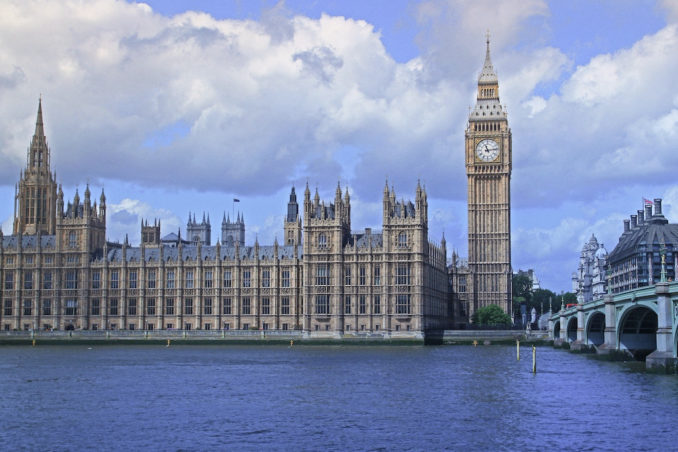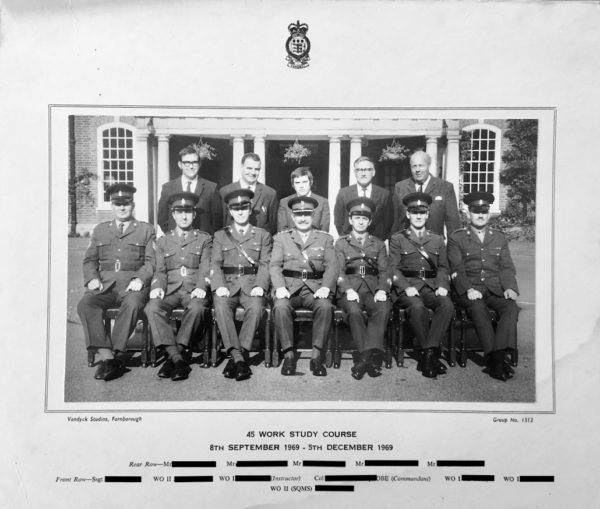
Image by Sarah Larkin from Pixabay
Having left for an idyllic childhood in a Leicestershire village at the age of 18 months, I returned to London in 1968 when I was posted to the MoD’s Army Contracts HQ in Southwark as a lowly clerk. As I was under the age of 18, I was entitled to cheap accommodation in the London Hostel Association’s hostel in Cadogan Square, Chelsea. This cost £4 10/- per week for bed and three meals a day – not bad for the heart of Chelsea – only 30 seconds from the Kings Road – in the Swinging Sixties, I hear you say. Except that the gross pay for my grade at the time was £499 per year. I just about managed for a few months until two things happened – I turned 18, thereby losing the entitlement to cheap accommodation, and, more expensively, I acquired a “fiance” which necessitated frequent bus journeys to and from her digs in Lewisham. £499 per year just wasn’t going to be enough
I mentioned this to my boss who, it turned out, was similarly hard up and was himself working evenings in the Catering Department at the House of Commons. He put in a word for me and I started the next week. I was based in the Strangers’ Cafeteria which was a self-service style cafe that House of Commons staff could use and MPs also used if they wanted to meet with their constituents or spouses. The kitchen also served the Members’ Cafeteria which, as the name implies, was open only to MPs and served the same food but with better furniture.
I was employed Monday to Thursday from 6pm until half an hour after the House rose. If this happened after 10.30pm, a taxi was laid on to take us home, otherwise we made our own way home. From memory (and it’s been a long time so I can’t be sure) the pay was 17/6 a night. My job was to hover helpfully behind the counter making recommendations, passing plates to the customers as they shuffled their trays along the counter and venturing out from behind the counter every few minutes to clear the tables. At busy times I was seconded to the Members Cafeteria where it was noticeable that the customers were mainly Conservative or Liberal Members, Labour Members preferring the more canteen-like environment of the Strangers’ Cafeteria.
The late 1960s were a golden age for British politics – Parliament was full of famous (and infamous) characters who had come from many different careers, including war-time military service, and therefore had far more experience and gravitas than today’s ex-SPADs. The two main parties had wildly differing policies and were evenly matched in numbers which made for lively debate in the Cafeteria as well as in the Chamber. On top of all that, society was going through one of its periodic upheavals. Yes, they were heady days, and all made tolerable for the Members by bacon, sausage, egg and beans served up by yours truly at eleven o’clock at night.
Sadly in the intervening half-century I have forgotten many of incidents and the politicians involved that made this possibly the most enjoyable job I have ever had. Harold Wilson stands out in my memory – I first encountered him through the medium of a hand-written note delivered by his private secretary, Marcia Falkender. He was busy in his office and so had dispatched her for his evening meal which was to be, in his own words, “two pieces of cod, a lot of chips and don’t forget the HP Sauce”. She didn’t really need the note as I don’t recall him having any other dish in all my time there. He did venture down to the Cafeteria sometimes and would sit by himself at a round table for four. I remember him on one occasion during a particularly acrimonious spat that he was having with his Home Secretary, Jim Callaghan, that was making the headlines daily. On this occasion there were very few seats available on any table except the one occupied solely by Wilson, who was busy eating his fish and chips. The door opened and Callaghan swept in, collected a fry-up from the counter and looked around for a seat. His eyes met Wilson’s, who stuck his elbows out as wide as he could, somehow managing to make himself occupy the entire table, and studiously ignored his Home Secretary who had to continue searching until he found a junior minister he could impose on.
Another Minister sticks in my memory largely because of the painful encounter we had. Barbara Castle was generally known for having a hot temper and we were all warned to treat her very carefully. At that time she was Secretary of State for Employment and was having a major battle with the unions, the Conservatives and her own party over her attempts to get the major overhaul of employment laws enshrined in her White Paper In Place of Strife through Parliament. One evening she came in straight from the Chamber, picked up a tray which she slid down the counter, and asked me for bacon, egg and chips. Our normal serving procedure was to place the food on a hot plate from the cabinet under the counter which we then placed on the customer’s tray with a warning that the plate was hot. It so happened on this occasion that there was something else on the counter between me and her tray meaning that I couldn’t easily get at it to put her plate on it. I did what I usually did in these circumstances – I wrapped a tea towel round the outside of the plate and offered it to her in such a way that she and I could both use the tea towel to protect our fingers, making sure I said, loudly, “be careful, the plate’s very hot”. She must have been distracted by matters of state as she ignored both me and my warning and grabbed the plate by the one bit that wasn’t wrapped in the tea towel. I think what she said to me is best described as “unparliamentary language” – I was certainly left in no doubt that she was in pain and that it was my fault. It took some soothing words from the Cafeteria Manager and an early tea break for me to smooth matters over.
In contrast, my encounter with another alleged firebrand of the sixties couldn’t have gone better. A few months after he delivered his “rivers of blood” speech to the Conservative Political Centre in Birmingham, Enoch Powell was in the House of Commons and decided that some light refreshment was in order. He had by that time been accorded the status of “hate figure” by the media, a role which he sadly never managed to shake off. As a naïve 18-year old from the provinces, I knew little of what he had said and understood even less. It was enough for me to know that this was a frightening man who should be handled carefully. I watched with some trepidation as he approached my section of the counter and psyched myself up to make sure that I gave him no grounds for complaint. He studied the menu above the counter and settled on a bowl of pea soup, whether as a starter or a main course I never found out. I filled the shallow soup bowl and proffered it to him; he reached for it but, as if a metaphor for the intellectual and age gulf between us, our hands were misaligned and he made only passing contact with the bowl, causing a tsunami of near-boiling pea soup to run round the edge and engulf the thumb of the Right Honourable Enoch Powell, Member of Parliament for Wolverhampton South West. I started to blurt out a profuse apology but was stopped in my tracks when he said “oh dear I’m terribly sorry, how clumsy of me” and went to his table, pausing only to wipe his thumb on the tea towel. I heaved sigh of relief.
The difference between his reaction and that of Barbara Castle couldn’t have be greater and it has over the years come to me to starkly illustrate the different ways in in which the “ordinary people” are treated by the left and the right. But I observed that MPs could also be pretty dismissive of their colleagues. One evening it started to look like we were going to be there all night as there were a large number of questions to be asked of the Chancellor of the Exchequer following the recent Budget Statement so on my break I went up to the Strangers’ Gallery to watch what I expected to be a fiery debate. Rather than witnessing an impressive display of democracy in action, I was rather disappointed to find there were in fact only four members in the Chamber. One of them was the Chancellor himself, Roy Jenkins, and the others were Opposition members who were taking it in turns to fire detailed questions at him, but in the indirect way that parliamentary protocol requires. I was impressed to see he was wading through a large red book – “Ah” I thought “he’s studying the budget documents so he can come up with an authoritative, detailed answer that will stop his questioners in their tracks – this will be worth watching”. After this had gone on for a few minutes without Jenkins saying anything, I leaned over the balcony to get a better look at the weighty document he was studying. I was surprised to see that it was in fact the latest Stanley Gibbons Stamp Catalogue! The Opposition’s questions were destined to trouble only the authors of next day’s Hansard and not the keen philatelist at the Despatch Box.
I did the job for almost a year and thoroughly enjoyed it. As well as earning the extra money that I needed to fund my new lifestyle, I learned a lot about what is now called the Hospitality Industry that has stayed with me ever since. I also learned that the “Great and Good” may very well be “great” but they are by no means necessarily “good”. I was sorry to give it up but had to leave towards the end of the year when I was posted to a thirteen-week course at the Army School of Work Study at Blackdown in Surrey. This meant that I swapped the London Hostel Association for the Warrant Officers’ and Sergeants’ Mess and for the next three months this fine body of men would be my colleagues and messmates.

© Jerry F 2021
© Jerry F 2021
The Goodnight Vienna Audio file



